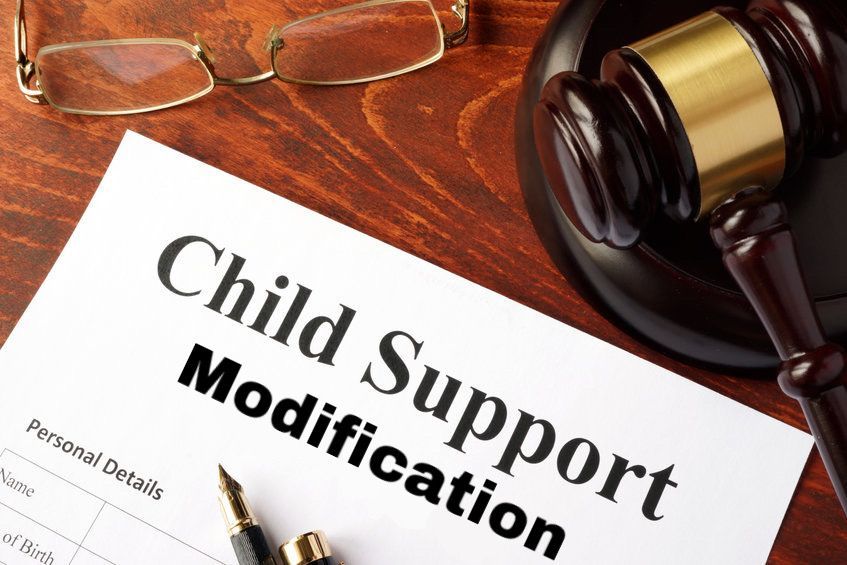What Is the Biggest Mistake in Custody Battle?
The biggest mistake in a custody battle is losing sight of your child's best interests. When parents let anger or hurt feelings drive their choices instead of focusing on what helps their kids, everyone loses. Courts care most about the child's wellbeing, not what feels fair to adults. Making decisions based on revenge or trying to hurt your ex can seriously damage your case and harm your relationship with your child.
Understanding What Courts Really Care About
Family courts have one main job when deciding custody cases. They need to figure out what's best for the child. Everything else comes second.
The Child's Best Interest Standard
Judges look at many factors when they decide custody. They want to see which parent can give the child a stable, loving home. They check if both parents can meet the child's physical needs like food, shelter, and medical care. They also think about emotional needs like love, support, and encouragement.
About 13 million custodial parents live in the United States, and each case is different. But judges always start with the same question: what helps this specific child thrive?
Why Your Feelings Can't Come First
It's normal to feel angry, hurt, or betrayed during a divorce or separation. Those feelings are real and valid. But when you're in court, your personal feelings need to take a back seat.
When parents make custody decisions based on getting back at their ex, judges notice. They see it as putting adult problems ahead of the child's needs. That's a red flag that can cost you custody time.
The Single Biggest Mistake: Parental Alienation
Speaking badly about your child's other parent is the worst thing you can do in a custody battle. This behavior is called parental alienation, and courts take it very seriously.
What Parental Alienation Looks Like
Parental alienation happens when one parent tries to turn the child against the other parent. Some researchers estimate that between 11 and 15 percent of divorces involving children lead to parental alienation. This harmful behavior can show up in many ways.
You might tell your child that their other parent doesn't love them anymore. You could make up stories about why the divorce happened and blame everything on your ex. Some parents share too many details about the court case with their kids, making the child feel like they need to pick a side.
Other signs include stopping your child from calling or visiting the other parent. You might schedule fun activities during the other parent's time so your child doesn't want to go. Or you could ask your child to spy on the other parent and report back to you.
How Courts Respond to Alienation
When judges see proof of parental alienation, they act fast. A judge will always attempt to act in the children's best interests, which may mean providing more favorable visitation and custody rights to the alienated parent. The parent doing the alienating often loses custody time or even primary custody.
Courts might order therapy for the whole family. They could reduce your time with your child or require supervised visits. In serious cases, the judge might give sole custody to the other parent. These consequences protect the child from emotional harm.
The Long Term Damage to Children
Kids caught in the middle of parental alienation suffer real harm. Kids who have experienced alienation can see people as all bad or all good with no ability to see shades of gray. This black and white thinking can lead to mental health problems later in life.
Children might struggle to form healthy relationships as adults. They learn that it's okay to cut people off when things get hard. The guilt and confusion they feel during the custody battle can stick with them for years.
Other Critical Mistakes That Hurt Your Case
While parental alienation tops the list, many other mistakes can damage your custody case. Let's look at the most common ones.
Blocking the Other Parent's Access
Some parents think they're protecting their child by keeping them away from the other parent. Unless there's real danger like abuse or neglect, this move will backfire.
Denying the other parent access to the child without a valid reason can have serious legal repercussions. Courts expect you to follow the visitation schedule, even if you don't like it. Breaking court orders makes you look unreliable and willing to ignore the law.
If you truly believe your child is in danger, talk to your lawyer right away. Don't just stop visits on your own. Get emergency court orders if needed. Taking matters into your own hands without legal backing will hurt your case.
Lying to the Court
Being dishonest about anything in your custody case is a terrible idea. Some parents lie about drug use, their work schedule, or problems with the other parent. Courts are more concerned with how substance abuse affects parenting abilities rather than the use itself.
Judges aren't stupid. They've heard thousands of cases and can spot lies. When they catch you in a lie, they'll wonder what else you're hiding. Your whole case falls apart once the judge stops believing you.
If you have problems like past substance abuse or mental health issues, be honest about them. Show the court you're getting help and making progress. Judges respect parents who take responsibility and work to improve.
Using Your Child as a Messenger
Don't ask your child to deliver messages to your ex. Don't pump them for information about what happens at the other parent's house. This puts enormous pressure on kids who just want both parents to be happy.
Children should never feel responsible for adult problems. When you use them as a go between, they feel guilty and stressed. They worry about saying the wrong thing and upsetting one parent or the other.
If you need to communicate with your ex about parenting issues, do it directly. Use email, text, or a co-parenting app. Keep your child out of adult conversations.
Ignoring Court Orders
Every court order matters, even the small ones. Some parents think they can skip child support payments or show up late for exchanges. Others ignore orders about who makes medical decisions or where the child goes to school.
Disregarding or violating court orders, even if you disagree with them, can have serious consequences. You could face contempt charges, fines, or jail time. More importantly, breaking orders shows the judge you can't be trusted to follow rules.
If a court order doesn't work anymore, ask your lawyer to file a motion to change it. Go through the proper legal steps. Don't just stop following orders because they're inconvenient.
Oversharing on Social Media
What you post online can come back to haunt you in court. That angry rant about your ex? Screenshot and shown to the judge. Photos of you partying when you said you couldn't afford child support? Evidence against you.
Social media posts or comments as evidence to assess the parents' attitudes and decision making abilities play a big role in modern custody cases. Assume anything you post will end up in front of the judge.
The safest choice is to stay off social media completely during your custody battle. If you must use it, never post about:
- Your ex or the custody case
- Partying or drinking
Keep your accounts private and watch what friends tag you in. Better yet, take a social media break until your case is settled.
Not Being Involved in Your Child's Life
Courts want to see that you're an active, engaged parent. If you work 80 hours a week and never make it to school events, that's a problem. If your child tells the judge you don't help with homework or know their teacher's name, that hurts your case.
Being a good parent means more than providing money. You need to show up for doctor appointments, parent teacher conferences, and soccer games. Know your child's friends, favorite subjects, and worries.
Keep a calendar of your involvement. Save school emails. Take photos at events. This documentation proves you're an active part of your child's daily life.
Trying to Handle It Alone
Approximately 80% of parents in custody battles represent themselves, which can lead to less favorable outcomes. Family law is complicated. The rules change from state to state. Court procedures are confusing if you don't know what you're doing.
A good family law attorney knows how to build your case. They understand what evidence matters and how to present it. They can spot problems before they hurt you. The money you spend on a lawyer is an investment in your relationship with your child.
Building a Strong Custody Case
Now that you know what not to do, let's talk about positive steps that help your case.
Focus on Cooperation
Judges love parents who can work together. Show that you're willing to compromise and communicate. Be flexible when your ex needs to switch weekends. Attend mediation with an open mind.
Keep all communication polite and focused on the kids. Even if your ex sends nasty messages, respond calmly and professionally. Save all communications in case you need to show the judge later.
Document Everything
Start keeping detailed records right away. Write down every interaction with your ex, including dates, times, and what was said. Save all texts, emails, and voicemails.
Track your time with your child. Note when you attend school events, doctor appointments, or extracurricular activities. Keep receipts for expenses you pay for your child.
This documentation becomes crucial evidence if your case goes to trial. It backs up your claims and shows a pattern of behavior over time.
Put Your Child's Needs First
Every decision you make should pass this test: is this good for my child? Not is this fair to me, or will this annoy my ex. Just what's best for the kid.
Maybe your child would do better with a schedule that gives you less time but provides more stability. Perhaps therapy would help your child adjust, even though it means admitting there are problems. Make the hard choices that help your child, not your ego.
Talk to teachers, doctors, and counselors about what your child needs. Listen to their advice. Show the court you're willing to do whatever it takes to support your child's wellbeing.
Get Professional Help
Don't try to handle everything on your own. A therapist can help you process your feelings so they don't spill over into your parenting. A family counselor can teach you better co-parenting skills.
If substance abuse or mental health issues are concerns, get treatment now. Don't wait for the judge to order it. Taking action on your own shows you're serious about being the best parent you can be.
Consider hiring experts like child psychologists or custody evaluators if your case is complicated. Their professional opinions carry weight with judges.
Understanding the Legal Process
Knowing what to expect helps you avoid mistakes during your custody case.
How Most Cases Get Resolved
91% of child custody decisions don't need to go to court for a decision. Most parents work out their own agreement through negotiation or mediation. Only the most difficult cases end up in front of a judge.
Mediation brings in a neutral third party to help you and your ex find common ground. It's cheaper and faster than going to trial. You have more control over the outcome since you're making the decisions, not a judge.
If you can't agree on your own, the court might order a custody evaluation. A professional will interview both parents, visit your homes, and sometimes talk to your child. Their recommendation influences the judge's decision.
What Happens at a Custody Hearing
If your case goes to court, both sides present evidence and witnesses. You'll testify about why you should have custody. Your ex will do the same. The judge might talk to your child if they're old enough.
The whole process focuses on the child's best interests. The judge looks at factors like:
- Each parent's relationship with the child
- Each parent's ability to provide a stable home
- The child's adjustment to home, school, and community
- Each parent's physical and mental health
- Any history of domestic violence or substance abuse
Prepare carefully for your hearing with your lawyer. Know what questions to expect and how to answer them honestly and calmly.
After the Judge Decides
Once the judge issues a custody order, you must follow it exactly. The order spells out physical custody (where the child lives) and legal custody (who makes major decisions). It includes a parenting schedule and addresses holidays and vacations.
If circumstances change later, you can ask the court to modify the order. Maybe you're moving for a new job, or your child's needs have changed. File a motion with the court and show why the change serves your child's best interests.
Special Situations and Challenges
Some custody cases involve extra complications that need careful handling.
Dealing with Domestic Violence
If domestic violence is part of your story, safety comes first. Around 50% of state laws presume that granting sole or joint legal custody to a parent with a history of domestic violence is harmful to the child. Courts take abuse seriously and want to protect children and victims.
Document all abuse with police reports, medical records, and photos of injuries. Get a protective order if you need one. Your lawyer can request supervised visitation or other safety measures.
Never use false abuse claims to gain an advantage in custody. Judges hate this tactic and it will destroy your credibility.
Substance Abuse Concerns
Addiction affects many families going through custody battles. If you're struggling with drugs or alcohol, get help immediately. Complete treatment programs and attend support groups. Drug test regularly to prove you're sober.
If your ex has substance abuse problems, gather evidence carefully. Drug test results, DUI arrests, and witness statements all matter. The court will consider whether the problem affects their ability to parent safely.
Mental Health Issues
Having a mental health diagnosis doesn't automatically mean you'll lose custody. What matters is whether your condition is controlled and how it impacts your parenting.
Follow your treatment plan. Take prescribed medications. See your therapist regularly. Show the court you're managing your mental health responsibly.
Be honest about your diagnosis but emphasize the steps you're taking. A well managed condition is better than hiding problems that might come out later.
When Child Support Becomes a Weapon
Some parents try to use custody and child support as bargaining chips. This is a huge mistake. Courts view this as harmful to the child and as a sign that the parent may not be acting in their child's best interests.
Pay your child support on time, every time. Even if you think the amount is unfair. Even if your ex isn't following the visitation schedule. Support and custody are separate issues legally. Withholding one to pressure changes in the other will backfire.
If you truly can't afford the support amount, file a motion to modify it through proper legal channels. Don't just stop paying.
Moving Forward After the Custody Battle
Even after the judge makes a decision, your work as a co-parent continues.
Building a Healthy Co-Parenting Relationship
The custody battle may be over, but you'll be dealing with your ex for years to come. Learning to work together makes life better for everyone, especially your child.
Set clear boundaries and stick to them. Communicate only about parenting issues, not personal matters. Use a businesslike tone in all exchanges. Think of your ex as a colleague you need to work with, not a former romantic partner.
Attend co-parenting classes if they're available. Read books about effective co-parenting. The skills you learn will help you avoid future conflicts.
Helping Your Child Adjust
More than 1 in 4 American kids (26.5%) have a parent who lives outside their household. Your child isn't alone in dealing with divorced parents. But they still need your support to adjust.
Never badmouth the other parent, even after the custody case ends. Don't quiz your child about what happens at the other house. Let them love both parents without feeling guilty.
Watch for signs your child is struggling like grades dropping, behavior problems, or pulling away from activities they used to enjoy. Get them into therapy if they need help processing their feelings.
When Modifications Become Necessary
Life doesn't stop after a custody order. Kids get older and their needs change. Parents get new jobs or move to different areas. Sometimes the original custody arrangement stops working.
Approximately 20 to 25% of custody arrangements are modified at some point after the initial divorce decree. If you need to change your order, work with your lawyer to file the proper paperwork. Show the court what's changed and why modification serves your child's best interests.
Try to work out changes with your ex first. Judges appreciate parents who can solve problems together. Going back to court should be a last resort.
Final Thoughts
The biggest mistake in a custody battle is losing focus on what really matters: your child's wellbeing. When you put your child first, make honest choices, and respect the legal process, you build the strongest possible case.
Remember that custody battles are hard on everyone. Take care of your own mental health. Lean on friends and family for support. Work with professionals who can guide you through the process.
The goal isn't to win against your ex. The goal is to make sure your child has two parents who love them and can work together for their benefit. That's what courts want to see, and it's what your child needs most.











